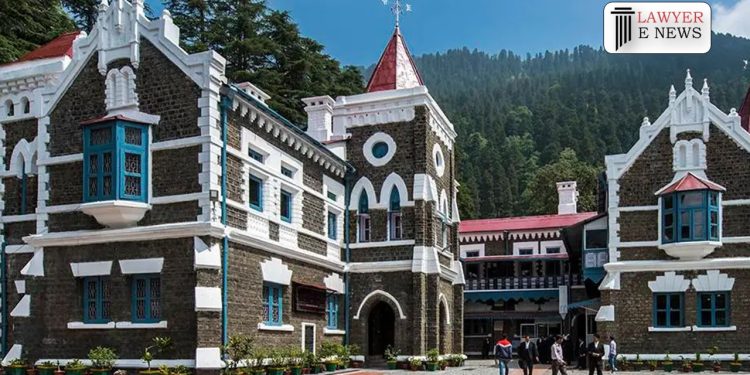-
by sayum
14 February 2026 2:22 PM



High Court of Uttarakhand emphasizes presumption of innocence and liberty under Article 21 of the Constitution.
The High Court of Uttarakhand, presided by Justice Alok Kumar Verma, has granted bail to Dal Chand Singh and Kamal Virmani in connection with a case involving allegations of creating and using forged sale deeds and title deeds. The judgment emphasized the absence of substantial incriminating evidence against the accused and highlighted the constitutional presumption of innocence.
The case originated from Case Crime No. 281 of 2023, registered at police station Kotwali Dehradun. The accused, Dal Chand Singh, a former Computer Operator, and Kamal Virmani, an Advocate, were implicated in a scheme involving the creation and use of forged sale deeds and title deeds. These forged documents were allegedly used to initiate mutation proceedings and replace original documents at the Sub-Registrar Office in Dehradun. The applicants were accused of conspiring to bind false deeds in place of the original ones, with Singh alleged to have physically replaced the documents and Virmani accused of drafting the forged documents.
Allegations of Forgery and Conspiracy:
The prosecution’s case stated that false sale deeds and title deeds were created for vacant lands or lands whose owners did not reside in Dehradun. These forged documents were then substituted for the originals in the Sub-Registrar Office. The applicants were found to be involved during the investigation, with Singh allegedly binding the false deeds and Virmani drafting the forged documents, some of which were reportedly recovered from his computer.
Absence of Incriminating Evidence:
Justice Verma noted that no incriminating material was recovered from the possession of the accused. The defense argued that Singh had not replaced any original documents and had only worked as a Computer Operator through an outsourcing agency for a brief period. Similarly, no incriminating articles were found on Virmani’s computer, and the forged deeds had not been declared forged by any competent court. The defense also highlighted Virmani’s long-standing legal career and lack of previous misconduct.
Justice Verma emphasized, “Bail is the rule and committal to jail is an exception. Refusal of bail is a restriction on the personal liberty of the individual, guaranteed under Article 21 of the Constitution of India.”
The court reasoned that the applicants had already been in judicial custody for an extended period, and with the charge-sheet filed, there was no requirement for further custodial interrogation. The defense highlighted the professional background of the accused, particularly Kamal Virmani’s 27-year career as an Advocate, asserting that their continued detention was unnecessary.
Granting bail, the court imposed conditions to ensure the accused’s regular attendance at trial and to prevent any tampering with evidence. The judgment underscored the presumption of innocence and the importance of personal liberty under the Constitution. This decision is likely to influence future bail considerations in similar cases, reinforcing the judiciary’s commitment to uphold individual rights against undue detention.
Date of Decision: May 15, 2024
Dal Chand Singh & Kamal Virmani vs. State of Uttarakhand
